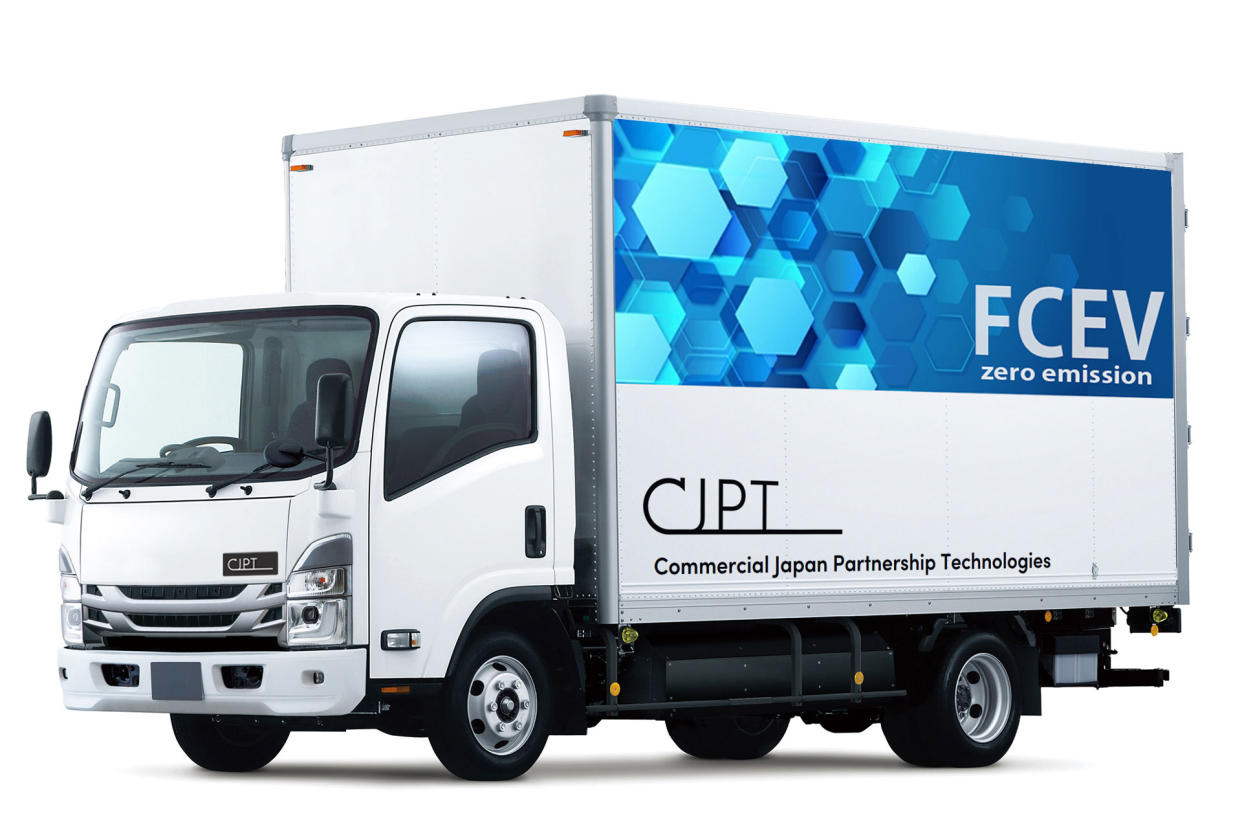Toyota partners to build affordable commercial electric vans, light-duty trucks

Toyota is partnering with Suzuki Motor Corporation, Daihatsu Motor Co. and Commercial Japan Partnership Technologies (CJPT) to build mini commercial electric vans next year, the Japanese automaker announced on Tuesday.
Suzuki and Daihatsu will bring to the table their knowledge of manufacturing mini vehicles, while Toyota will come forth with its electrification technology to jointly develop the BEV system. CJPT will help plan and establish energy management systems. Toyota said such a sharing of resources and expertise would help the companies achieve a van that is more affordable than many of the commercial EVs on the market today.
Toyota said the fuel cell e-vans it develops will be used in social implementation projects in Fukushima Prefecture and Tokyo.
Toyota also shared plans to develop light-duty fuel cell electric trucks for the mass market, alongside CJPT, Hino Motors and Isuzu Motors.
According to a statement released by the company, hydrogen-powered light-duty trucks are ideal for middle-mile delivery to supermarkets and convenience stores, not only because they're built with refrigeration and freezing capabilities, but also because they can meet fast refueling requirements.
The partnerships are part of a larger mission by Toyota to realize a hydrogen society and achieve carbon neutrality by 2050. The automaker also announced its strategy, in partnership with Fukushima, to create an implementation model focusing on hydrogen use in cities with populations of around 300,000, and the upcoming fuel cell mini vans and light-duty trucks will play a crucial role.
The project with Fukushima will focus on deliveries to supermarkets and convenience stores, which Toyota says are a part of essential urban infrastructure, as well as evacuation areas in times of disaster. Beginning January 2023, Toyota will deploy approximately 60 light-duty fuel cell electric trucks in Iwaki City and Koriyama City, the automaker said, noting plans to introduce heavy-duty trucks there, as well.
All of the trucks will be linked through an energy management system that links the fleet management of each company, vehicle travel information and hydrogen station information, said Toyota. The system will help to create a more efficient network by avoiding traffic congestion and minimizing vehicle and cargo downtime.
Toyota's project with Fukushima will also involve decarbonizing hydrogen plants and stores by increasing the use of renewable energy. It will rely on automotive component manufacturer Denso Fukushima's plants to showcase the implementation of hydrogen technologies. Denso will build a model of locally produced hydrogen that can be used as fuel cell generators in offices, according to Toyota.

